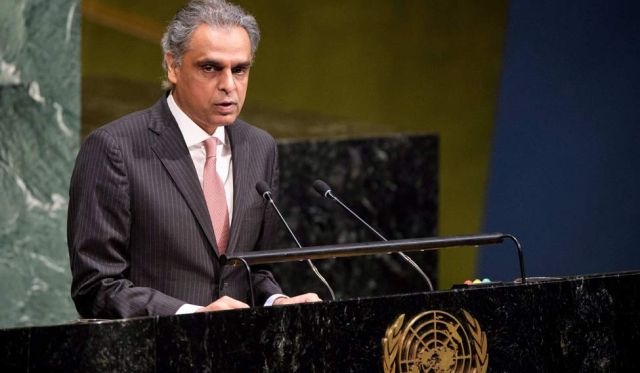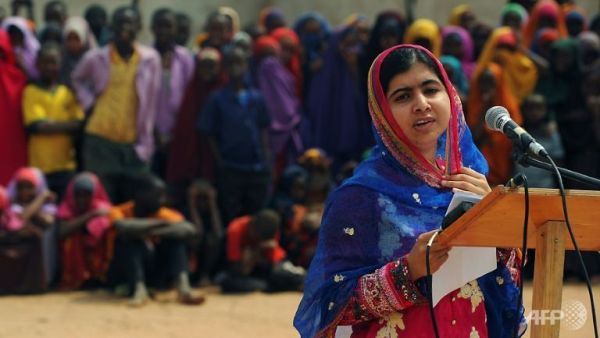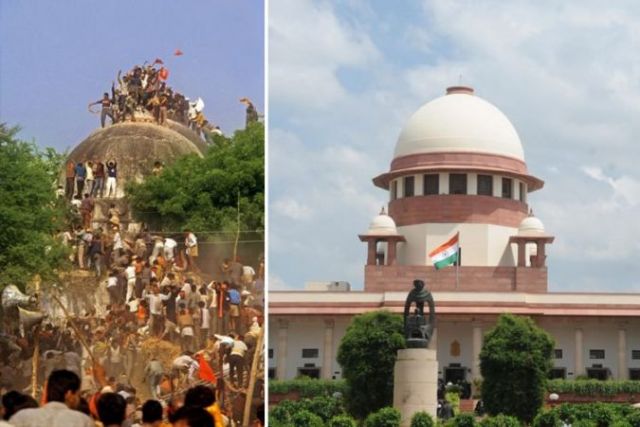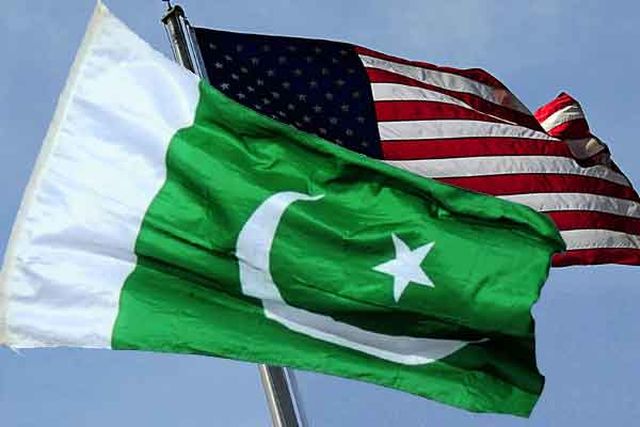
by admin | May 25, 2021 | Corporate, Corporate Governance, News, Politics

Syed Akbaruddin
By Arul Louis,
United Nations : India has criticised the world body for not doing enough to cut off the drug trade that is financing the Taliban with over a billion dollars as it continues its military operations with the support of Afghanistan’s neighbour.
Terrorist organisations operating in Afghanistan “benefit significantly from criminal networks operating drug cartels and stealing Afghanistan’s natural resources”, India’s Permanent Representative Syed Akbaruddin told the Security Council on Monday during a debate on the situation there.
“The opium produced in Taliban-controlled areas is estimated to account for 85 per cent of global illicit production, valued between $1.5 billion to $3 billion,” he said.
“By some estimates, 60 per cent of the Taliban’s revenues are from the drug trade. Poppy cultivation is said to be the largest cash crop in Taliban-controlled areas,” he added.
Yet the UN has not given adequate attention to the drug trade that is financing the Taliban and other terrorist organisations, Akbaruddin said.
While a Security Council resolution earlier in 2018 focused on the nexus of terrorism, drugs and illegal exploitation of natural resources in Afghanistan, it fell “short of expectations in striving to cripple the Taliban’s drug trade”, he said.
Secretary-General Antonio Guterres’ current report “also fails to address this very key issue in an adequate manner”, he added.
Akbaruddin cited the experience of combating the Islamic State in Iraq and Syria where international action cut off its oil trade, reducing it by about 90 per cent, from about $50 million per month to $4 million, over three years.
This successful international campaign against the Islamic State should be replicated in Afghanistan against the Taliban’s drug trade, he said.
Without mentioning Pakistan by name, Akbaruddin hit out against Islamabad for providing safe havens for terrorists to plan and carry out their attacks.
“These sanctuaries have, for years, provided safety for the dark agendas of ideologically and operationally-fused terror networks like the Taliban, Haqqani network, Daesh, Al Qaeda and its proscribed affiliates such as the Lashkar-e-Taiba and Jaish-e-Mohammed,” he said.
Akbaruddin said that India was committed to helping Afghanistan and its “focus remains on the economic pillar of stability and reliable connectivity”.
He said: “We strongly believe that lack of connectivity directly impacts the economic, security and political situation in Afghanistan and we want to address this crucial issue for the benefit of the Afghan people.”
India’s efforts to open a sea link for Afghanistan through the Chabahar port, which it is developing in Iran along with road and rail links for Afghanistan, is in peril because US President Donald Trump has reimposed sanctions on Tehran.
If India is not able to use the port or develop it further, it would seriously set back the connectivity that Afghanistan badly needs for its economic growth.
(Arul Louis can be reached at arul.l@ians.in)
—IANS

by admin | May 25, 2021 | Entrepreneurship, Muslim World, Women Entrepreneur

Malala Yousafzai
By Hardev Sanotra,
Las Vegas : Taliban’s efforts to keep girls away from education in Pakistan was defeated by their very action of shooting her, says Malala Yousafzai, the world’s youngest Nobel laureate.
“The result is that today millions of people all over the world are speaking out” and taking action against keeping young girls away from the liberating influence of education, she told an audience of several thousand techies here on Tuesday.
She was invited by VMware for their VMworld 2018 conference to talk about her rising from the near-death experience to become a leading voice in the world on educating young girls.
Malala was shot in the head by a Taliban member in 2012 when she defied the diktat of the Sunni Islamic fundamentalist movement, which was entrenched in Afghanistan.
She was interviewed on the stage by Sanjay Poonen, Chief Operating Officer of VMware.
Born in Swat Valley of Pakistan, Malala said her life was as normal as could be and she was lucky to have a father who believed in her and in educating girls.
“We could not then believe that something like the Taliban could happen, as you cannot today, here, that someone would come with guns and take away your right to education.”
She was repeatedly greeted with applause from an appreciative audience as she told her story of defiance.
She said she had to fight against the mindset of people — manifested by the Taliban men — who were against educating girls, or even allowing them to move out of their homes alone.
“They were against education because they knew that it would empower women to be independent.”
Men with guns first banned music, then they stopped women from going out and finally prevented the girls from being educated.
Malala did not remember the incident leading up to her shooting in the Swat Valley as she recalled the moment when she woke up in a hospital in Birmingham, UK, where she stayed for two and a half months.
She was conferred the Nobel Prize for her courage and became an activist and a symbol of defiance against the Taliban’s brand of politics.
Poonen sought to know why she had forgiven the person who sought to kill her. She said he was a young Taliban follower who was told that he had to kill a “blasphemous” person. He thought he was a doing good in a twisted thinking about Islam — a religion, she said, which spreads the message of kindness, tolerance and peace.
She said she hoped that the person gets education and realises the true meaning of the religion he was following. She also did not want to hold on to the anger. “Hate and anger is a waste of energy and I did not want to waste my energy”, and so she moved on to “forgive” the person who had attacked her.
She told the audience that she was named after Malalai of Maiwand who had defied the British troops in the 1880 Battle of Maiwand in Afghanistan, who was one of the few women known in history from the area, because traditionally women “did not have names”, as they were confined behind burkhas or head-to-toe-covering.
“They were called either someone’s daughter or sister,” not having a name of her own.
Talking on a lighter note at the conference, she said she was overwhelmed by “too many acronyms” used by the techies, bringing the house down. She spoke about her love of cricket and how she tried to explain to Westerners that it “was okay” to play a game for five days which was exciting and not boring as many thought.
She spoke about the need for India and Pakistan to have good relations, “but when it comes to cricket we are rivals”. She said it did not matter who got the cricketing World Cup as long as Pakistan won against India.
Poonen, of Indian origin, and who is responsible for worldwide sales, services, alliances, marketing and communication at VMware said that the two nations were united in their love for the game.
Malala also spoke about doing everything to ensure that girls get educated since 150 million of them worldwide did not get the “liberating influence” which would give them freedom and independence.
She works to raise money for her foundation which works in several countries towards that goal.
She told the 100 students invited to the conference from two schools that they should “believe in themselves” and speak up about things they believe in.
“There is no such thing as young age for taking up causes,” she told a student who posed a question on behalf of the others, pointing to her own age of 10 or 11 when she took up the fight against the Taliban.
Poonen announced Dell Technologies’ – VMware’s parent company – plan to provide the invited students’ school with computers, and he urged his colleagues (some 23,000 of them) to donate to Malala’s foundation for which the company would provide matching funds.
(Hardev Sanotra is in Las Vegas at the invitation of VMware for its VMworld 2018 conference. He can be reached at hardev.sanotra@ians.in)
—IANS

by admin | May 25, 2021 | Muslim World
 Washington : The US declared it is ready to support, facilitate and participate in direct negotiations between the Afghan government and the Taliban, on the occasion of the Afghan government’s announcement on Sunday of a conditional three-month ceasefire with the Taliban.
Washington : The US declared it is ready to support, facilitate and participate in direct negotiations between the Afghan government and the Taliban, on the occasion of the Afghan government’s announcement on Sunday of a conditional three-month ceasefire with the Taliban.
“This plan responds to the clear and continued call of the Afghan people for peace,” the US Secretary of State Mike Pompeo said in a statement.
“The United States and our international partners support this initiative by the Afghan people and the Afghan government, and we call on the Taliban to participate,” he added, saying that his country also supports Afghan President Ashraf Ghani’s offer “for comprehensive negotiations on a mutually agreed agenda.”
“It is our hope, and that of the international community, that the Afghan people may celebrate Eid al-Adha (Festival of Sacrifice) this year in peace, free from fear,” he said.
Pompeo recalled that the last ceasefire in the Asian country revealed “the deep desire” of the Afghan people to end the conflict and said the US hopes that “another ceasefire will move the country closer to sustainable security,” Efe reported.
President Ghani on Sunday, the day Afghanistan was celebrating the 99th anniversary of its independence from British rule, announced a conditional three-month ceasefire with the Taliban, beginning on Monday ahead of Eid al-Adha, provided the insurgents reciprocate.
After the Taliban’s surprise three-day ceasefire in mid-June on the occasion of the Muslim Festival of Sacrifice, Gani has now proclaimed a ceasefire that would be the longest since the US invasion in 2001.
—IANS

by admin | May 25, 2021 | News, Politics
 New Delhi : The Supreme Court on Friday was told that just as the statue of Bamiyan Buddha was destroyed by the Afghan Taliban, similarly the Hindu Taliban razed the Babri Masjid in Ayodhya on December 6, 1992.
New Delhi : The Supreme Court on Friday was told that just as the statue of Bamiyan Buddha was destroyed by the Afghan Taliban, similarly the Hindu Taliban razed the Babri Masjid in Ayodhya on December 6, 1992.
“Just as Bamiyan Buddha was destroyed by Afghan Taliban, same way Babri Masjid was destroyed by Hindu Taliban,” the bench of Chief Justice Dipak Misra, Justice Ashok Bhushan and Justice S. Abdul Nazeer was told by senior counsel Rajeev Dhavan.
“No faith has a right to destroy a mosque,” Dhavan said, assailing the argument by the Hindu side that no equity survived once the mosque had gone (razed).
“It can’t be, should not be argued that no equity lies and there is nothing left to be decided once it (mosque) has been destroyed,” Dhavan told the bench.
Dhavan said this to the three-judge bench while advancing arguments that the 1994 top court judgment that had said that offering namaz in a mosque was not an essential practice of Islam needed to be revisited.
“The question of essential practice was totally alien to the case before the top court bench in 1994,” he said.
Appearing for the lead petitioner M. Siddiqui represented by his legal heir, Dhavan assailed the Uttar Pradesh government for abandoning its neutrality and pointing fingers at Muslim litigants for making “belated efforts” seeking a relook at the 1994 Ismail Farooqui judgment that had said that mosques were not an integral part of religious practice of offering prayers.
He told the court that the neutrality had been broken by the Uttar Pradesh government which was represented by the Additional Solicitor General – a law officer of the Central government which is the receiver of the disputed land.
Describing the shift in the stand of the Uttar Pradesh government as a “breach of faith”, Dhavan said that there was no delay on the part of the Muslim litigants in flagging the issue and they did it in the first instance when the opportunity arose.
It were the Hindu litigants who had relied upon the 1994 judgment during the hearing of the title suit of the disputed site before the Lucknow bench of Allahabad High Court.
The senior counsel took exception to senior counsel K. Parasaran telling the court on May 17 that for Muslims “Makkah and Madinah alone are places of particular significance” as pilgrimage centres but such was not the case with Ayodhya/Babri Masjid.
Describing it as invidious argument, Dhavan said this meant that for the Muslims and Christians, their centre of pilgrimages were overseas and thousands of churches and mosques could be closed.
This also amounted to saying that Hindus were protected by the Article 25 of the constitution but not the Muslims and Christians and “We (the Hindus) are superior and everything belongs to us”.
Dhavan described as an indulgent act of “charity” the offer by the Shia Waqf Board to move out of the disputed site in return for a site for a new mosque.
He said the 1994 judgment needed to be revisited as the Lucknow bench of Allahabad High Court relied on this in deciding the Ayodhya title suit by which the disputed 2.77 acres site was ordered to be divided between the Nirmohi Akhara, the Lord Ram deity and the Sunni Waqf Board.
The top court is hearing a batch of cross petitions challenging the 2010 Allahabad High Court judgment by which it had divided the disputed 2.77 acres site between the Nirmohi Akhara, the Lord Ram deity and the Sunni Waqf Board.
—IANS

by admin | May 25, 2021 | Muslim World
 Washington : A top US official has reminded Pakistan that it is still “on notice” to eliminate terror havens from its territory and said that Washington wants unequivocal cooperation in ending sanctuaries enjoyed by the Taliban on its soil.
Washington : A top US official has reminded Pakistan that it is still “on notice” to eliminate terror havens from its territory and said that Washington wants unequivocal cooperation in ending sanctuaries enjoyed by the Taliban on its soil.
“Pakistan is on notice that we expect its unequivocal cooperation ending sanctuaries that the Taliban have enjoyed since the remnants of their toppled regime fled into Pakistan in 2001,” said Ambassador Alice Wells, Senior Bureau Official for South and Central Asian Affairs, in a testimony before the House Foreign Affairs Committee on Thursday.
Wells told the committee that the current US administration was working with Pakistan to uproot Taliban from its soil.
In this year’s New Year Day message, US President Donald Trump had put Islamabad on notice, accusing it of “taking billions and billions of dollars” from Washington while “housing the same terrorists” that it was supposed to fight. Later, he suspended more than two billion dollars of security aid to Pakistan.
Islamabad had rejected the allegations as “unfounded”.
In her testimony on “US policy towards Afghanistan”, Wells said: “Despite some positive indicators, we have not yet seen Pakistan take the sustained or decisive steps that we would have expected to see 10 months after the announcement of the (Trump administration’s) South Asia strategy.”
In her message to Pakistan, she asked it to work with the US to bring the Taliban to the negotiating table and arrest or expel those elements in the militant group that do not join the peace process.
Talking about Afghanistan, Wells said that the US was encouraging reconcilable elements within the Afghan Taliban to stop fighting in an effort to reduce violence and make the environment conducive for reconciliation.
She identified four key areas where the US was working to help bolster prospects for an eventual settlement.
They were: Supporting Afghan efforts to reduce violence and protect a peace process from spoilers, encouraging all political actors — including the Taliban — to participate in the peace process, supporting Kabul’s efforts to eliminate the conditions that cause militancy and encouraging Afghanistan’s neighbours to back the peace process.
Wells also called upon the Afghan Taliban to snap ties with Al Qaeda, submit to the Constitution and ensure protection of women’s rights.
—IANS





